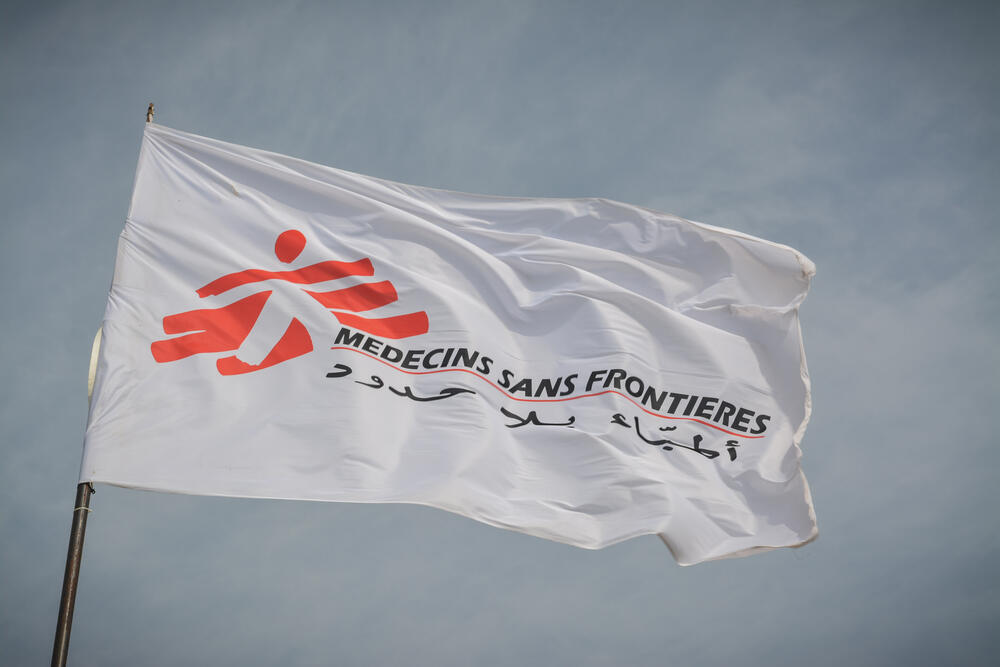Sudan: Last hospital in El Fasher under threat from intense bombardment of the city
As the fighting escalates in the Sudanese city of El Fasher, its impact on the lives of civilians has become devastating, warns Médecins Sans Frontières / Doctors Without Borders (MSF).
Multiple attacks on the city have taken place over the past week and, since Saturday, at least 15 people have been killed and more than 130 have been injured.
There has also been yet another attack on the MSF-supported Saudi Hospital – the last remaining public hospital in the city with the capacity to treat the wounded and perform surgery – causing extensive damage and leaving the facility only partially functioning.
Sudan: The biggest humanitarian crisis on Earth, explained
The attack took place on Sunday 11 August, marking the eleventh time a hospital in El Fasher has been hit since the fighting escalated on May 10.
The surgical ward was hit during the bombardment, killing the carer of a patient and injuring five others, while the maternity unit was also damaged. A number of hospital offices were also hit and a nurse sustained injuries while working inside.
“Sunday’s attack on Saudi Hospital makes it crystal clear that the warring parties are making no efforts to protect health facilities or the civilians inside them”
Already, Saudi Hospital had been inundated with wounded people following heavy fighting on Saturday 10 August.
Over 100 people arrived at the facility that day and 14 passed away from their injuries. At the same time, 15 casualties were brought from El Fasher to MSF’s facilities at the nearby Zamzam camp for displaced people.
It is expected that the fighting will become even more intense over the coming days.
Michel Olivier Lacharité, Head of MSF Emergency Operations, says:
“For more than three months, people in El Fasher have been under constant bombardment.
“Shelling from both sides has impacted the city resulting in over 2,500 casualties arriving at MSF-supported hospitals and more than 370 of these patients passing away from their injuries. The number of victims of the conflict is unknown.
“Sunday’s attack on Saudi Hospital – which is the largest hospital in North Darfur state – makes it crystal clear that the warring parties are making no efforts to protect health facilities or the civilians inside them. Patients fear for their lives as a result of the relentless attacks.
“People are moving to Zamzam to flee the fighting in El Fasher, but those already in the camp also fear for their lives – Zamzam was hit by shelling just one week ago and there are very real fears that this will happen again.
“We are preparing to receive more casualties in Zamzam– especially as the fighting in El Fasher means that people cannot easily reach Saudi Hospital.

Help us prepare for the next emergency
“However, our field hospital has been built to treat children with malnutrition and paediatric diseases – it is not currently set up to treat the wounded. There is no operating theatre and no blood bank, which means our team will be under exceptional pressure if casualties continue to arrive.
“Additionally, people in the camp are already facing life-threatening issues of their own. MSF raised the alarm about the catastrophic malnutrition crisis there over six months ago, and now the Famine Review Committee has declared a state of famine in the camp.
“We urge the warring parties to let humanitarian supplies pass through without being obstructed, and we also urge them to protect civilians and health structures.
“Saudi is the last remaining public hospital in North Darfur with the capacity to effectively treat the wounded. If it, or our facilities in Zamzam, are hit again and become non-functional, there will be nowhere left for the injured to seek care and the death toll will soar.”
MSF and the crisis in Sudan
On Saturday 15 April 2023, intense fighting broke out across Sudan with a wave of gunfire, shelling and airstrikes.
The violence between the Sudanese Armed Forces (SAF) and the Rapid Support Forces (RSF) has trapped millions of people in the middle of an unexpected conflict. Many have been forced to flee their homes while access to essential services such as healthcare has become increasingly difficult.
Médecins Sans Frontières / Doctors Without Borders (MSF) teams already working in Sudan have been responding to the crisis since its first moments.
